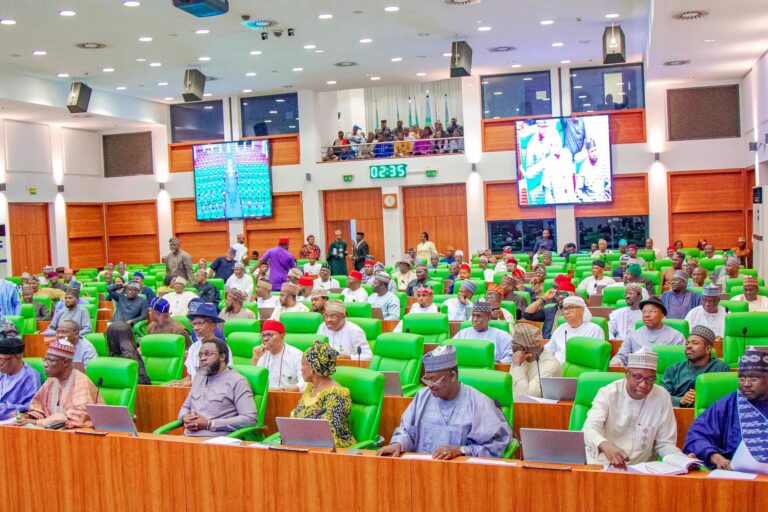The Nation
Reps push for new process in INEC chairman appointment

The House of Representatives Committee on Constitution Review is weighing a proposal to amend the constitution to alter how the Chairman of the Independent National Electoral Commission (INEC) is appointed, by bringing the National Judicial Council (NJC) into the process.
According to a report PUNCH, the amendment seeks to reduce the influence of the executive arm by enhancing the transparency and impartiality of INEC leadership appointments.
This proposed shift follows long-standing calls for electoral reform, including the recommendations made in 2007 by the late Chief Justice of Nigeria, Muhammadu Uwais, who led the Electoral Reform Committee.
The Uwais-led panel had advised that the NJC, rather than the President, should be responsible for nominating INEC board members, and that the commission’s funding should come directly from the Consolidated Revenue Fund to safeguard its autonomy.
Former INEC Chairman, Prof. Attahiru Jega, said that the proposed change was a positive development.
READ ALSO:APC won’t escape defeat in 2027 even if Tinubu appoints son INEC chairman -Ex-minister
“It is a welcome development. It is one of the many good recommendations on how to insulate the position of whoever is chairman of INEC from political and executive pressures, as well as curing the deep-seated impression that ‘he who pays the piper dictates the tune.’”
Samson Itodo, Executive Director of YIAGA Africa, echoed this support, though he raised concerns about the NJC’s neutrality.
“The proposal by the National Assembly to amend the constitution to involve the NJC in the appointment of the INEC chairman is in line with Justice Uwais’ recommendation because over time, we have seen how presidents appoint their protégés and cronies, including people with a clear partisan background, into INEC.
“It is because of this that YIAGA Africa called it institutional capture, that is, INEC captured by the executive arm.
“Is the NJC independent enough to manage the appointment of the INEC chairman in view of the fact that the CJN has overbearing powers in determining the members and the composition of its members?”
While backing the intention behind the reform, Itodo advocated for a more inclusive approach.
“I don’t know if this proposal to have the NJC manage the appointment process is a welcome development or if it would inspire confidence on the part of Nigerians.
“It is good to remove the power of appointing the INEC chairman from the President, but is it possible to set up a multi-stakeholder committee to manage this process and then send nominations or those who successfully passed the interview process to the National Assembly for screening before appointments by the President?
“There has to be a way of ensuring that whoever is responsible for any action in the appointment value chain is independent, so that we don’t have partisan people getting appointed to the electoral commission.”
Auwal Rafsanjani, Executive Director of the Civil Society Legislative Advocacy Centre, also supported the involvement of the NJC, suggesting it could help rehabilitate the image of the judiciary.
“If the National Assembly can amend the constitution to allow the NJC to have a say in the selection process of the INEC chairman, it will be a good development. It will enhance the integrity and credibility of the NJC because Nigerians are beginning to question the character of the judiciary. Nigerians are losing confidence in the judiciary because of their perception of injustice perpetrated by that arm of government.
“Hopefully, NJC members who will be involved in selecting the INEC chairman, as well as the Commissioners, will help the image of the judiciary. Our constitution does not allow partisan persons to head the electoral commission, but successive presidents have been ignoring this constitutional provision. So, NJC members who are expected to be non-partisan would assist in selecting a good person to head INEC,” Rafsanjani said.
However, not everyone is convinced the proposal will lead to meaningful reform. Abuja-based constitutional lawyer Abdul Mahmud expressed skepticism about expanding the NJC’s powers.
“This proposal raises serious red flags and invites critical scrutiny, both in terms of principle and practice.
“The NJC is supposed to safeguard the independence and integrity of the judiciary. Yet, its own credibility is contested: members are unelected, largely composed of senior judicial officers, many of whom are insiders to a system that has drawn public distrust.
“Some of these members have been directly involved in controversial, even ‘perfidious,’ Supreme Court decisions, especially in political cases.
“The fact that Justice Olukayode Ariwoola has retired and Justice Kudirat Kekere-Ekun, reportedly denied visas to the US, now chairs the NJC, compounds concern about both domestic and international confidence in our country’s judicial integrity.
“If a body with such a questionable track record is now being empowered to influence who becomes the INEC Chairman, we are not reforming the system; we are entrenching rot.”
He added, “To entrust the NJC with more powers, especially in a function so crucial to democracy as appointing the INEC Chairman, is akin to asking the fox to help guard the henhouse.
“This proposed amendment is not about deepening democracy, but about rearranging power within a closed elite circle of robed arbiters and ruling politicians.”





















